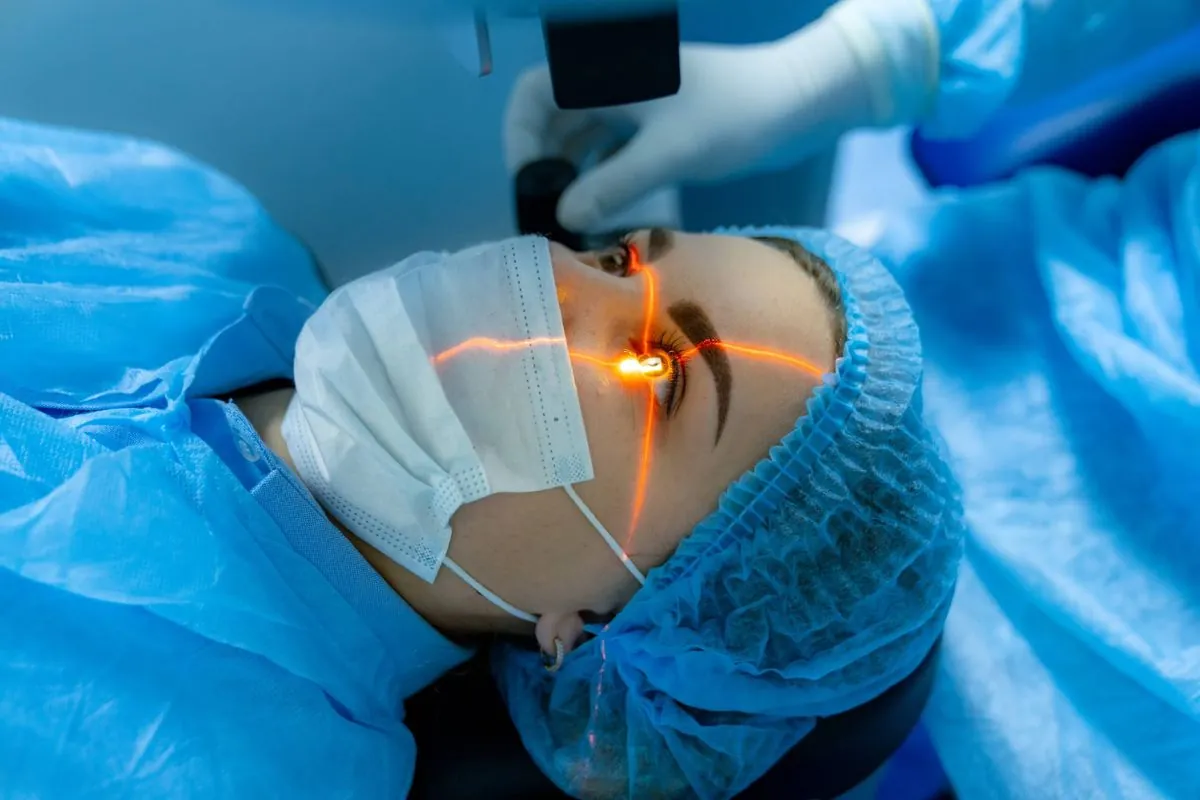Lens Replacement Surgery: Benefits, Risks, and Recovery Explained
Lens replacement surgery, a common procedure for cataracts and vision correction, offers benefits but carries risks. Learn about eligibility, costs, and recovery process in this comprehensive guide.

Lens replacement surgery, also known as refractive lens exchange, is a procedure where the eye's natural lens is replaced with an artificial intraocular lens. This operation is primarily used to treat cataracts, the leading cause of blindness worldwide, but can also correct various vision problems.
In the UK, over 300,000 lens replacement procedures are performed annually. While it's a common operation, it's important to understand its applications, benefits, and potential risks.
Prof Dan Reinstein, a laser eye surgeon, explains that cataracts develop when the eye's natural lens becomes cloudy with age, affecting about 30% of people. However, Prof William Ayliffe, a consultant ophthalmologist, cautions that this more invasive procedure is sometimes performed unnecessarily when other options are available.
Eligibility for lens replacement surgery typically includes:
- Individuals over 40 (no upper age limit)
- Good general health
- No eye infections or anesthetic allergies
- Absence of certain eye conditions like macular degeneration
The evaluation process involves comprehensive eye scans and tests to determine suitability. Alex Ionides, a consultant ophthalmologist, suggests that ideal candidates are those who need glasses for both distance and near vision.

When selecting a clinic, Prof Reinstein advises choosing one offering a range of treatments to ensure unbiased advice. Costs vary, ranging from £1,995 to £4,500 per eye, depending on the clinic and lens type.
Benefits of lens replacement surgery include:
- Prevention of future cataracts
- Correction of strong prescriptions
- Potential permanent solution for various vision problems
- Stable vision post-surgery (barring other eye conditions)
However, the procedure carries risks:
- Surgical complications (rare but potentially serious)
- Infection (endophthalmitis, affecting 1 in 2,000-3,000 cases)
- Vision issues like contrast problems or night vision difficulties
"Complication rates for lens replacement surgery are higher than people recognize. If you have normal vision when you wear glasses, it's not worth the risk of lens replacement."
Recovery typically takes about two weeks, with full adjustment potentially taking a few months. Patients may experience temporary visual phenomena like halos or light streaks. Post-operative care instructions include:
- Wearing an eye shield overnight
- Avoiding water in the eyes for the first week
- Refraining from driving until cleared by the doctor
- Avoiding strenuous activity for two weeks
- No swimming for 4-6 weeks
Most clinics offer 12 months of aftercare, including follow-up appointments to monitor healing and vision improvement.
In conclusion, while lens replacement surgery can be life-changing for those with cataracts or severe vision problems, it's crucial to carefully consider the necessity and potential risks before proceeding. Consulting with a qualified ophthalmologist is essential to determine the best course of action for your individual eye health needs.


































